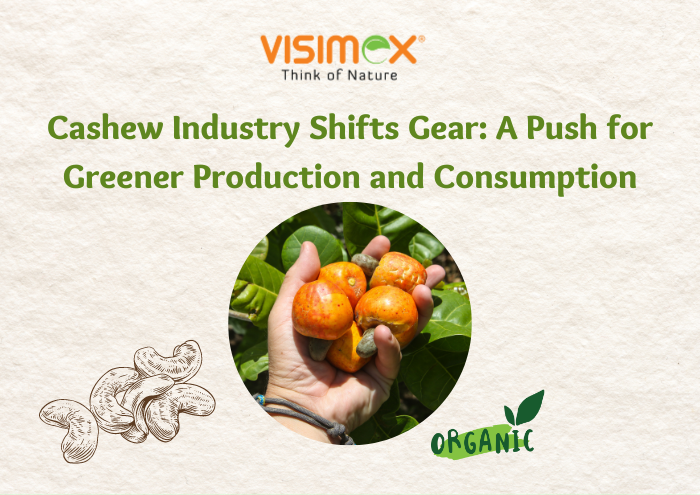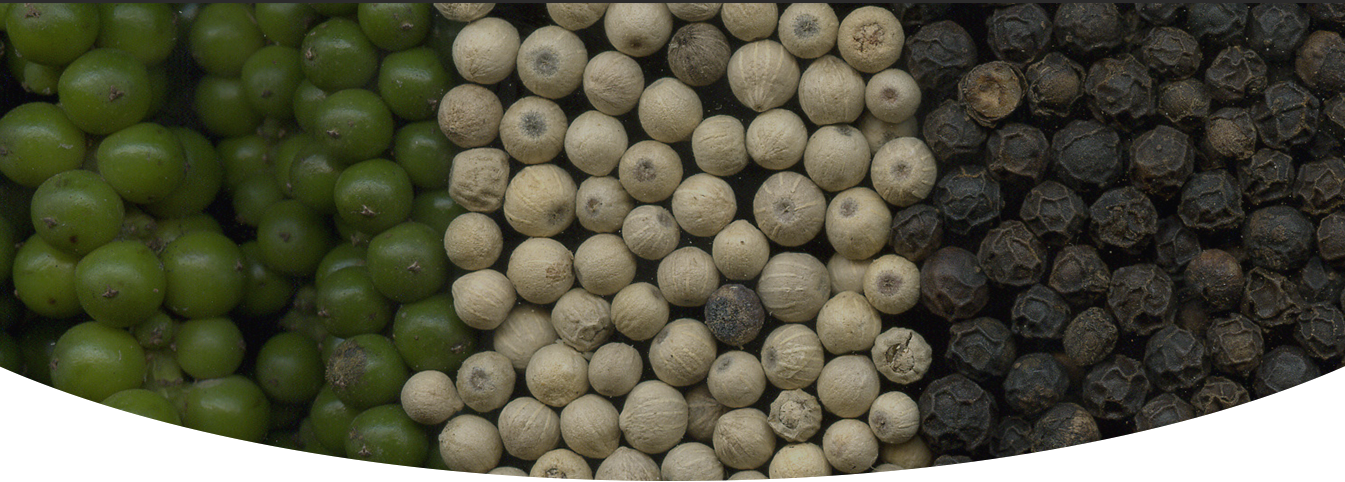In response to growing environmental concerns and a global push towards sustainability, the cashew industry is undergoing a significant transformation. This shift is marked by a concerted effort to boost green production and consumption practices. As one of the key players in the global nut trade, the cashew industry’s commitment to environmental responsibility is reshaping the landscape of cashew farming and trade. This article explores the multifaceted strategies employed by the cashew industry to align with green principles, emphasising sustainable production methods, responsible sourcing, and consumer awareness.

Sustainable Farming Practices
Sustainable farming practices in the cashew industry are steering a transformative shift towards environmental responsibility. Embracing agroforestry, cashew farmers integrate trees within existing ecosystems, fostering biodiversity and resilience. Organic cultivation methods, avoiding synthetic pesticides and fertilisers, ensure a harmonious relationship with the environment, safeguarding soil health and minimising chemical runoff. Water conservation measures, such as rainwater harvesting and efficient irrigation, address the sector’s significant water usage, promoting sustainability. Community engagement and empowerment, including fair trade principles and farmer cooperatives, ensure that the benefits of sustainable practices extend to local communities. Despite challenges in balancing economic viability with sustainability goals, the industry sees opportunities in market differentiation and increased consumer trust. The commitment to sustainable practices not only addresses current environmental concerns but positions the cashew industry as a responsible player in creating a greener and more resilient agricultural future.
Responsible Sourcing and Supply Chain Transparency
In the cashew industry, responsible sourcing and supply chain transparency have become imperative as consumers increasingly prioritise ethical and sustainable practices. This commitment involves engaging with cashew farmers who uphold fair labour and environmental standards, ensuring equitable wages and safe working conditions. Establishing transparency throughout the supply chain is paramount, with companies actively tracing and disclosing the journey of cashew products, empowering consumers to make informed choices. Certifications from recognized programs, such as Fair Trade or Rainforest Alliance, validate adherence to ethical practices. Environmental stewardship is integral, with partnerships promoting agroforestry, organic cultivation, and reduced water usage. Social impact initiatives, including education and healthcare support in cashew-producing regions, underscore a holistic approach to responsibility. Through collaboration with stakeholders and consumer awareness campaigns, the cashew industry strives to create a sustainable and ethical supply chain, meeting consumer expectations and contributing to the overall resilience and positive impact of the sector.
Green Innovation and Technology Adoption
Green innovation and technology adoption are driving transformative changes in the cashew industry, aligning it with sustainable and eco-friendly practices. Cashew producers are increasingly investing in cutting-edge technologies to minimise environmental impact, optimise resource utilisation, and reduce energy consumption throughout the production process. Innovative processing methods that minimise waste and energy-efficient machinery are being integrated into cashew processing units, promoting sustainability. Additionally, advancements in packaging technologies are contributing to reduced environmental footprints. The adoption of these green innovations not only addresses ecological concerns but also aligns with consumer preferences for environmentally responsible products. Beyond processing, technology is playing a crucial role in precision agriculture, enabling more efficient water usage, nutrient management, and pest control in cashew orchards. The intersection of green innovation and technology adoption in the cashew industry underscores a commitment to environmental stewardship and positions it as a leader in sustainable agriculture practices
Consumer Education and Awareness
Consumer education and awareness initiatives are gaining prominence in the cashew industry as a pivotal strategy to foster informed and sustainable choices among consumers. Recognizing the power of consumers to drive positive change, companies are actively engaging in campaigns to educate the public about the social and environmental aspects of cashew production. These initiatives aim to raise awareness about responsible sourcing, fair trade practices, and the environmental impact of different cashew products. Transparent labelling, eco-friendly certifications, and clear communication on packaging contribute to informed decision-making. By highlighting the industry’s commitment to ethical and sustainable practices, consumer education empowers individuals to align their purchasing decisions with their values, encouraging a shift towards supporting environmentally responsible cashew products. Ultimately, the success of these initiatives not only depends on companies disseminating information but also on consumers actively seeking and prioritising products that uphold ethical and sustainable standards in the cashew industry
Challenges and Opportunities
While the move towards greener practices is promising, the cashew industry faces challenges in balancing economic viability with environmental responsibility. Striking this delicate equilibrium requires collaboration among industry stakeholders, governments, and consumers. However, the transition also presents opportunities for market differentiation, increased consumer trust, and the creation of a more resilient and sustainable cashew industry.
The cashew industry’s commitment to boosting green production and consumption signifies a positive step towards a more sustainable and eco-conscious future. Through the adoption of sustainable farming practices, responsible sourcing, technological innovation, and consumer education, the industry is redefining its role in the global marketplace. As environmental considerations continue to gain prominence, the cashew industry’s green initiatives not only respond to current concerns but also lay the groundwork for a more sustainable and responsible industry in the years to come.
As the cashew industry strives for sustainability through responsible sourcing, supply chain transparency, and green innovation, pioneering organisations like Visimex stand out. With over 20 years of experience exporting Vietnamese agricultural products, Visimex has consistently demonstrated a commitment to ethical and sustainable practices. As a trailblazer in organic agriculture in Vietnam, Visimex has played a crucial role in setting high standards for responsible sourcing, ensuring fair labour practices, and championing environmental stewardship. Their dedication to promoting sustainable farming practices, including agroforestry and organic cultivation, aligns seamlessly with the industry’s green revolution. Visimex’s transparent supply chain and adherence to eco-friendly certifications exemplify a holistic approach to responsible cashew production. In essence, Visimex’s long standing commitment to ethical agriculture intertwines with the broader industry narrative, showcasing that sustainable practices are not just a trend but a necessity for a resilient and responsible cashew industry.











